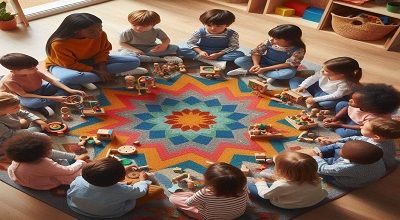Important Montessori Education For Children
Here, Why Important Montessori Education For Children? Montessori education is a child-centered educational approach. That focuses on the development of the whole child. Including their cognitive, social, emotional, and physical development. It was developed by Italian physician and educator Dr. Maria Montessori in the early 1900s. And has since become a popular choice for early childhood education around the world.
Here are some reasons why Montessori education is important for children:
- Individualized learning: Montessori education recognizes that each child has their own unique learning style and pace. And provides a learning environment that is tailored to their individual needs and interests.
- Child-led learning: Montessori education emphasizes self-directed learning, allowing children to follow their own interests and work at their own pace. This approach helps children develop a love of learning and a sense of responsibility for their own education.
- Hands-on learning: Montessori education uses a variety of hands-on learning materials. That is designed to be engaging and stimulating for children. This helps children learn by doing and encourages them to explore and discover the world around them.
- Emphasis on social skills: Montessori education emphasizes the development of social skills, including communication, collaboration, and conflict resolution. Children learn to work and play together in a respectful and cooperative manner. Develop a sense of empathy and understanding for others.
- A holistic approach to education: Montessori education recognizes that children’s development is multifaceted. And focuses on developing the whole child, including their cognitive, social, emotional, and physical development.
Overall, Montessori education provides a supportive and stimulating environment. That helps children develop a love of learning, build self-confidence, and acquire important life skills.
Main Purpose Of Montessori Education?
The main purpose of Montessori education is to foster the natural development of the child in a supportive, child-centered environment. This approach to education is based on the principles and practices developed by Dr. Maria Montessori in the early 1900s.
The Montessori method of education is designed to help children develop confidence. Independent learners who are able to think critically and solve problems creatively. It aims to support the child’s natural development by providing a prepared environment that meets the child’s needs and interests.
The main purposes of Montessori education can be summarized as follows:
- To foster independence: Montessori education helps children develop a sense of independence. And self-reliance by allowing them to take charge of their own learning and take responsibility for their own progress.
- To promote exploration and discovery: Montessori education encourages children to explore. And discover the world around them through hands-on learning experiences. That is designed to stimulate their natural curiosity and imagination.
- To develop social skills: Montessori education recognizes the importance of social interaction in a child’s development. And provides opportunities for children to learn and practice important social skills. Such as communication, cooperation, and conflict resolution.
- To support holistic development: Montessori education aims to support the development of the whole child, including their cognitive, social, emotional, and physical development.
- To cultivate a love of learning: Montessori education helps children develop a lifelong love of learning by providing a supportive and stimulating environment that encourages exploration, creativity, and discovery.
Overall, the main purpose of Montessori Education is to help children. Develop into confident, independent learners. Who are able to think critically, work collaboratively, and make positive contributions to society.
